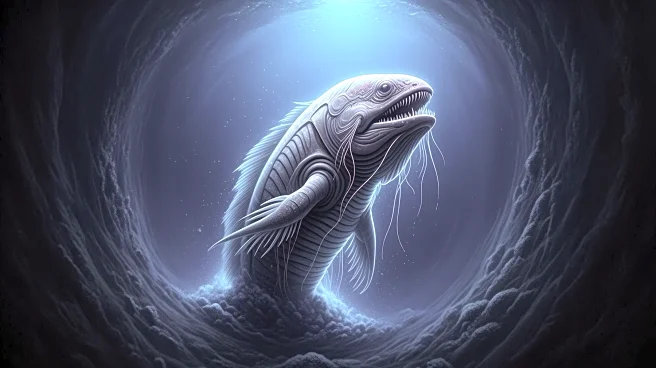What's Happening?
The Senckenberg Ocean Species Alliance has reported the discovery of 14 new marine species, including worms, molluscs, and crustaceans, as part of the Ocean Species Discoveries project. Among the notable findings is a sea anemone attached to a tusk shell,
marking a unique interaction in the mollusc genus Laevidentalium. The study, published in the Biodiversity Data Journal, highlights the vast unknowns of oceanic life. Researchers utilized non-invasive micro-CT scanning to capture detailed images of the species, including a new carnivorous bivalve and a shrimp-like crustacean found at significant ocean depths.
Why It's Important?
This discovery underscores the importance of marine biodiversity and the need for accelerated taxonomy processes. By identifying new species, scientists can better understand ecological interactions and the impact of environmental changes on marine life. The findings may influence conservation strategies and policies aimed at protecting deep-sea ecosystems. The research also demonstrates the potential of advanced imaging techniques in studying marine organisms, which could lead to more efficient and comprehensive biodiversity assessments.
What's Next?
The Ocean Species Discoveries project aims to continue its efforts in cataloging marine life, potentially leading to further discoveries. The findings may prompt additional research into the ecological roles of these newly identified species and their interactions within the oceanic environment. Conservationists and policymakers might use this data to advocate for stronger protections of deep-sea habitats, ensuring the preservation of marine biodiversity.
Beyond the Headlines
The study highlights ethical considerations in marine research, such as the impact of human activities on ocean ecosystems. The discovery of new species raises questions about the balance between exploration and conservation, emphasizing the need for responsible scientific practices. Long-term, these findings could shift cultural perceptions of the ocean, fostering greater appreciation and stewardship of marine environments.














